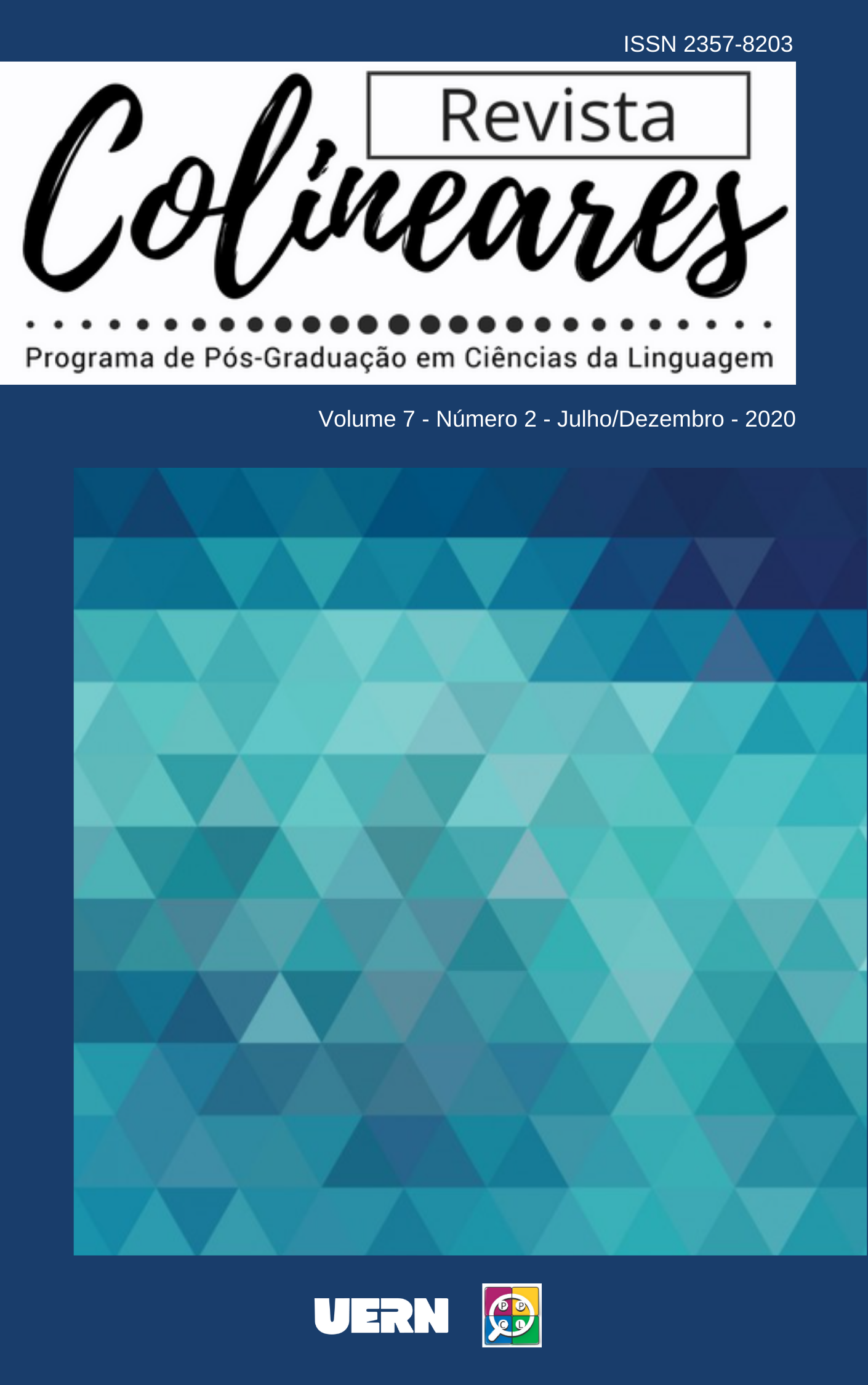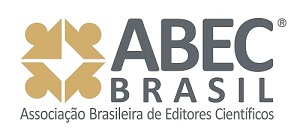New Pragmatics approach: developments and contributions for language studies
Keywords:
New Pragmatics, Linguistics, DiscourseAbstract
The studies in pragmatics were established in the 20th century as the area that investigates the signs/interpreter"™s relationship. Among the most widespread pragmatic approaches is the Speech Act theory, developed by Austin (1962) and resumed by Searle (1969). In the 21st century, a new pragmatic approach was introduced by Rajagopalan (2010), who suggests a rereading of Austin"™s work and the disruption of the ties which have limited his original approach. Searle"™s reading of Austin"™s work mainly consists of speech acts classification proposal. The new proposal is distinguished for adopting a critical perspective, the interest in analyzing the political and ideological connotations related to language phenomena, and the transdisciplinary character, which dialogues with different areas of Humanities. Therefore, this paper aims to comment on the emergence and the principles of New Pragmatics, as well as its main contributions to Linguistics and to the discursive and social phenomena"™s understanding.
Downloads
References
ALENCAR, C. N. Tudo aqui é poesia?: A pragmática cultural como pesquisa participante com movimentos sociais e coletivos juvenis em territórios de violência urbana. Interdisciplinar, v. 31, p. 237-256, 2019.
ALENCAR, C. N.; BONFIM, M. A. L. A constituição do conceito de violência no jogo de linguagem mística do MST-CE. Antares, v. 4, p. 92-107, 2012.
ALENCAR, C. N.; FERREIRA, D. M. Por uma 'nova pragmática emancipatória'. Trabalhos em Linguística Aplicada (UNICAMP), v. 52, p. 271-285, 2013.
ALENCAR, C. N.; FERREIRA, D. M. Rajagopalan interpretando Austin: descolonialidades na nova pragmática do hemisfério sul. DELTA. Documentação de Estudos em Linguística Teórica e Aplicada (Online), v. 32, p. 613-632, 2016.
AMOSSY, R. L"™argumentation dans le discours. Paris: Colin, 2006.
AUSTIN, J. L. How to do things with words. Oxford: Clarendon Press, 1962.
BLOMMAERT, J. Ideologias linguísticas e poder. In: SILVA, D. N.; FERREIRA, D. M. M.; ALENCAR, C. N. (Orgs.). Nova Pragmática: modos de fazer. São Paulo: Cortez, 2014. p. 67-77.
BROWN, P.; LEVINSON, S. Politeness: Some Universals in Language Use. Cambridge: Cambridge University Press, 1987.
FAIRCLOUGH, N. Discurso e mudança social. Brasília: Editora Universidade de Brasília, 2001.
GRICE, H. P. Studies in the way of words. Boston: Harvard University Press, 1990.
IVANOVA, I. Les sources de la conception du dialogue chez L. Jakubinskij. Texto! diciembre de 2003 [online]. Disponível em:
<http://www.revue-texto.net/Inedits/Ivanova_Jakubinskij.html> Acesso em 18 de outubro de 2020.
IVANOVA, I. O diálogo na linguística soviética dos anos 1920-1930. Bakhtiniana, São Paulo, v. 6, n. 1, p. 239-267, 2011.
LEEZENBERG, M. Em torno de uma abordagem prática em pragmática: tragédia grega como conversação impolida. In: SILVA, D. N.; FERREIRA, D. M. M.; ALENCAR, C. N. (Orgs.). Nova Pragmática: modos de fazer. São Paulo: Cortez, 2014. p. 43-66.
LEVINSON, S. Pragmatics. Cambridge: Cambridge University Press, 1983.
MARCONDES, D. Desenvolvimentos recentes na Teoria dos Atos de Fala. O que nos Faz Pensar, Rio de Janeiro, v. 17, p. 25-40, 2003.
MORRIS, C. Signs, language and behavior. Nova York: George Baziller, Inc., 1938.
OLIVEIRA, J. A. Pragmática e Comunicação. Linguagem em Foco, Fortaleza, v. 2, n. 2, p. 53-68, 2010.
PINTO, J. P. Performatividade radical: ato de fala ou ato de corpo? Gênero, Niterói, v. 3, n. 1, p. 101-110, 2002.
RAJAGOPALAN, K. Entrevista. In: XAVIER, A. C.; CORTEZ, S. (Orgs.). Conversas com linguistas: virtudes e controvérsias da linguística. São Paulo: Parábola, 2003, p. 175-182.
RAJAGOPALAN, K. Por uma Linguística Crítica. Línguas e Letras, v. 8, n. 14, p. 13-20, 2007.
¬¬¬¬¬RAJAGOPALAN, K. A nova pragmática: fases e feições de um fazer. São Paulo: Parábola, 2010.
RAJAGOPALAN, K. Da arrogância cartesiana à "nova pragmática". In: SILVA, D. N.; FERREIRA, D. M. M.; ALENCAR, C. N. (Orgs.). Nova Pragmática: modos de fazer. São Paulo: Cortez, 2014, p. 11-14.
RIESTRA, D. El dialogismo y los géneros de la interacción verbal humana en Jakubinskij y Voloshinov. Eutomia, Recife, v. 21, n. 1, p. 1-19, 2018.
SCHANZER, L. M.; WHEELER, C. I. Jürgen Habermas y la problemática de la neutralidad valorativa. ¿es posible una ciencia social crítica? Papeles de Trabajo, Rosário, n. 19, p. 1-9, 2010.
SEARLE, J. Speech acts: an essay in the philosophy of language. Cambridge: Cambridge University Press, 1969.
SEARLE, J. Expression and meaning. Cambridge: Cambridge University Press, 1979.
SILVA, D. N.; ALENCAR, C. N.; FERREIRA, D. M. Uma nova pragmática para antigos problemas. In: SILVA, D. N.; ALENCAR, C. N.; FERREIRA, D. M. (Orgs.). Nova Pragmática: modos de fazer. São Paulo: Cortez, 2014. p. 15-39.
SOUSA SANTOS, B.; MENESES, M. P. Introdução. In: SOUSA SANTOS, B.; MENESES, M. P. (org.). Epistemologias do Sul. São Paulo: Perdizes, 2010. p. 16-27.
VAN LEEUWEN, T. Introducing Social Semiotics. Nova York: Routledge, 2005.
Downloads
Published
How to Cite
Issue
Section
License
Copyright (c) 2020 Monique de Mesquita Lessa

This work is licensed under a Creative Commons Attribution-NonCommercial-ShareAlike 4.0 International License.






